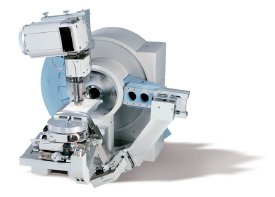Jun 11 2008
The X’Pert PRO MPD X-ray powder diffraction (XRPD) system from PANalytical combines rapid data collection with unsurpassed data quality. This makes possible for the first time the use of a single analytical system for polymorph screening in combination with structural analysis.

Traditionally, screening instruments have been optimized for speed, providing only low-resolution data. As a result, the use of a second, high-resolution analysis technique has been common.
Now, sample data collected on Cimetidine (a histamine receptor antagonist), bovine insulin, and other complex organic materials, shows how the X’Pert PRO MPD takes high-resolution screening to a new level. The system offers high throughput, high-resolution screening that goes beyond pure polymorph identification to deliver semi-automatic crystallographic analysis.
The investigation of polymorphs - chemically identical substances in different crystallographic forms with possibly differing dissolution properties and varying bioavailability - is a key step in drug development. It aids the selection of a suitable solid form for development. In addition, because several polymorphs can have similar efficacy, it is essential that pharmaceutical companies discover and patent all polymorphs, hydrates and solvates of a drug.
XRPD is an accepted methodology for new product registrations and patent applications - an indexed XRPD pattern is frequently used to secure a patent.